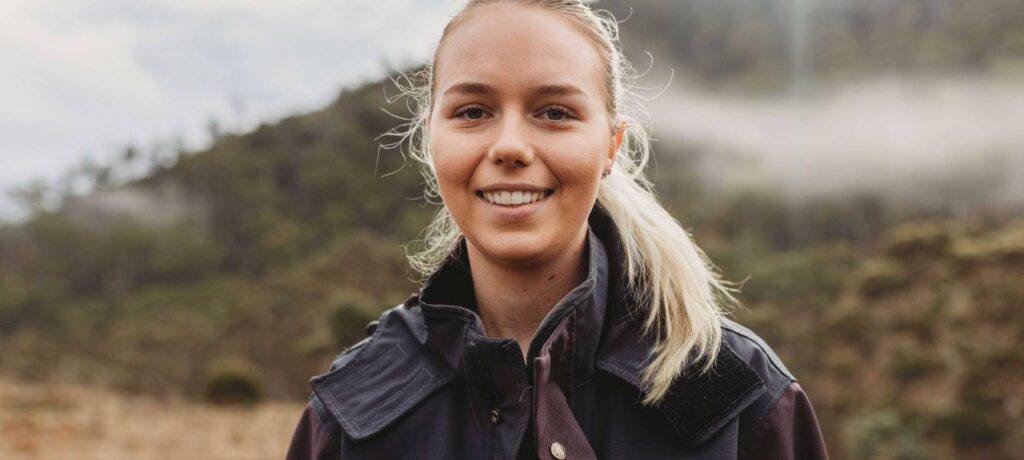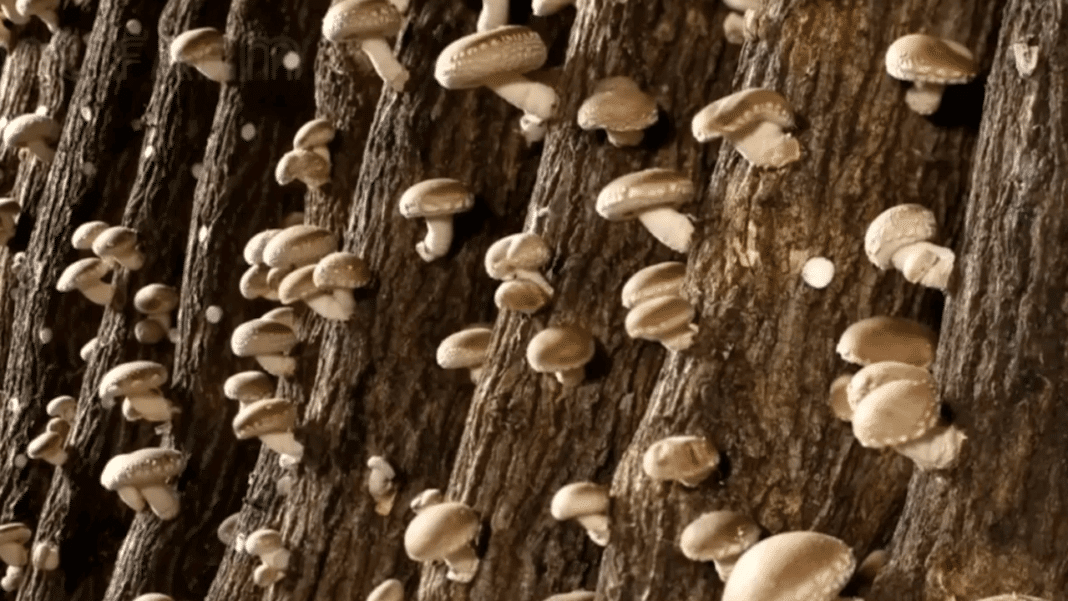Private Forests Tasmania agroforester Molly Marshall recently returned from an agroforestry knowledge exchange in Japan.
Over 12 days, Molly travelled around central Honshu with the group of Australian forest industry stakeholders including Rowan Reid, Sharlee Dunolly-Lee, Andrew Stewart, Rob Youl, Jacinta Douglas and Kazuki Kagohashi.
The group visited and interacted with an array of land managers, foresters, farmers, entrepreneurs, sawmillers and government officials.
Through the group’s travels they were able to understand the complexities and opportunities which the Japanese forestry sector faces.
All the forests inspected were dominated by softwoods planted post World War 2, with some areas showing regeneration of some minor native hardwood species.

Some of the complexities the group was able to better understand were the small scale of the land parcels (often less than 1 ha), the operational constraints (terrain and weather) and absentee landowners (often the elderly).
Despite these factors, however, the group was able to see innovation occurring and the multiple values managed in Japan for such commodities as maple syrup, sap water, tea, essential oils, education, biodiversity, timber, and shiitake mushrooms.
The innovation continued across the whole supply chain with the group fortunate enough to meet Mr Hironari Inoue of Hida Goboku Inc.
This local family business was completely vertically integrated along the supply chain from sawmilling through to owning and operating a construction business.
The local Kiyomi sawmill runs year-round on 5 ha of trees. How incredible is that?
The exchange was supported by the Australian-Japan Foundation and Landcare
The group left Melbourne on March 20 – the day before World Forestry Day – and was joined by Japanese Landcare colleague Professor Kazuki Kagohashi.
Funds were obtained from the Australia-Japan Foundation; Ausmed, Australia’s major online nursing training and accreditation provider; and from private sources.
In addition, it was supported by Landcare – a grassroots movement committed to improve land management and conservation.

In a report leading up to March 20, Rob Youl – deputy chair of Global Landcare – saluted the delegation and its commitment to land management.
“The delegation expects to learn a great deal from our hosts, given the depth of Japanese culture and land management experience, especially in terms of forest and water resources.” Youl said.
“For our part, we hope to show how farming activities can be blended with high-grade timber production, with concomitant landscape, biodiversity, fire protection and educational benefits and enhanced farm yields.”
Landcare has a rich history in Japan stemming from the late Professor Michael Seigel introducing the organisation to the country in the mid-2000s.
According Youl, programs like agroforestry initiative play an important role in enhancing the Australian-Japanese relations.
“Australian-style multi-disciplinary Landcare, with its strong emphasis on communication and empowerment, had always seemed to him a possible tool for provincial Japan.” Youl continues.
“Moreover, in Australia, Landcare networks were being increasingly involved in disaster management and post-event restoration. Indeed, they were often part of the emergency contingency system.”






